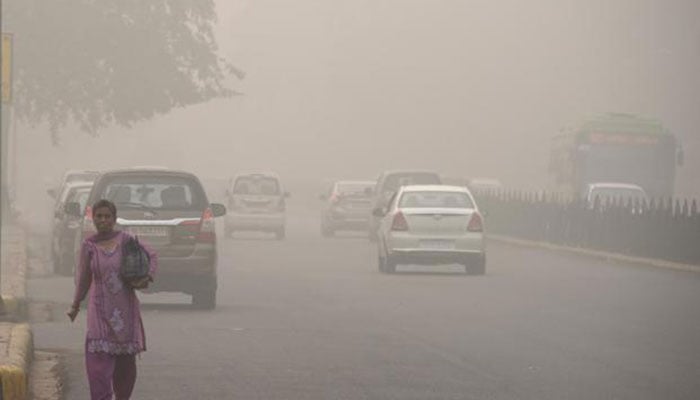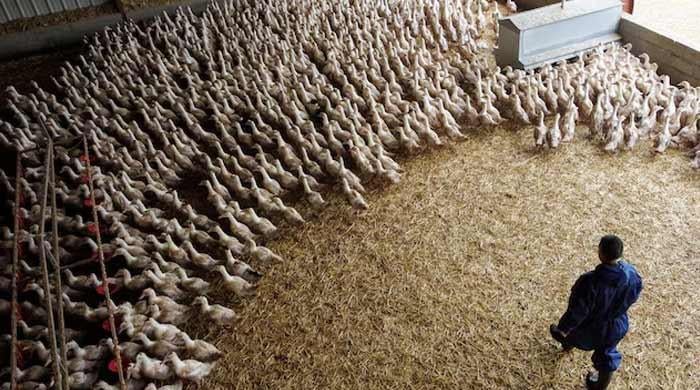Pakistan among countries which breathe dangerous air: study
More than 95 per cent of world's population breathes dangerous air, a new study suggests
April 17, 2018

A report published by the Health Effects Institute, says that 95 per cent of the world’s population breathes dangerous air.
According to the study, China’s air pollution exposures have stabilised and have even begun to decline slightly; however, Pakistan, Bangladesh, and India, in contrast, have experienced the steepest increases in air pollution levels since 2010.
The particulate matter (PM) standard set by the World Health Organization (WHO) has continued to exceed the PM2.5 Air quality guideline established by WHO.
Based on the data and knowledge of the populations in each country for 2016, 95 per cent of the world’s population lives in areas that exceeded the WHO Guideline for PM2.5. 58 per cent of the global population resided in areas with PM2.5.
On top of the list are countries in North Africa, West Africa and the Middle East who have the highest grossing concentration of dangerous air.
The next-highest concentrations appeared in South Asia where combustion emissions from multiple sources, including household solid fuel use, coal-fired power plants, agricultural and another open burning, and industrial and transportation-related sources, are the main contributors, the report states.
The population-weighted annual average PM2.5 concentrations were recorded 101 µg/m3 in Bangladesh, 78 µg/m3 in Nepal, and 76 µg/m3 in both India and Pakistan. The population-weighted annual average concentration in China was 56 µg/ m3.
Estimates for population-weighted annual average PM2.5 concentrations were found to be lowest in Australia, Brunei, Canada, Estonia, Finland, Greenland, Iceland, New Zealand, Sweden, and several Pacific island nations.
Vice president of the institute, Bob O’Keefe, said the gap between the most polluted air on the planet and the least polluted was striking. While developed countries have made moves to clean up, many developing countries have fallen further behind while seeking economic growth.









